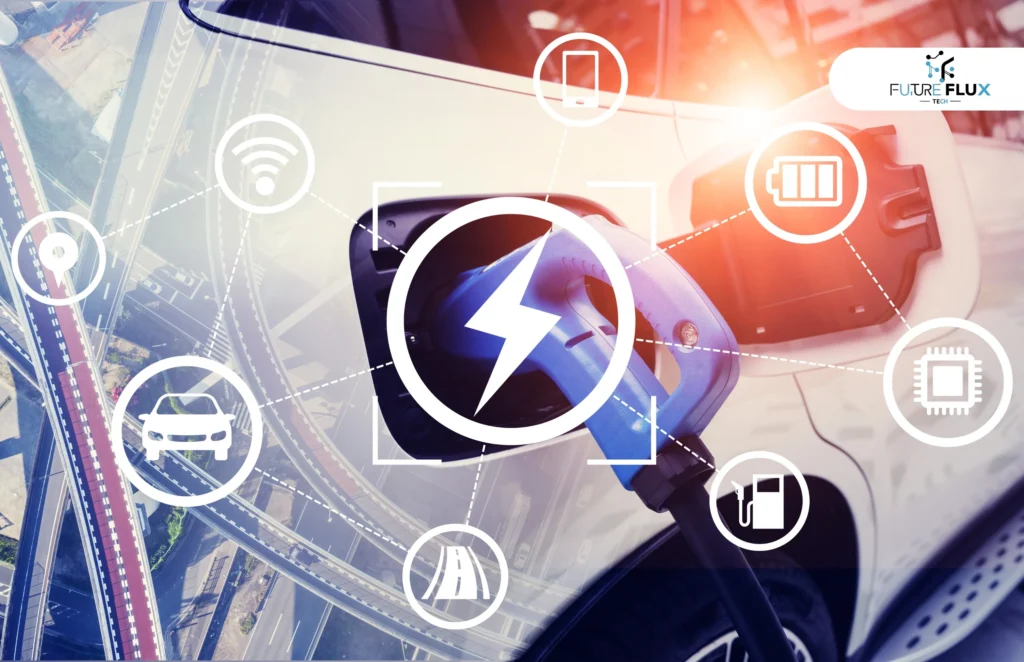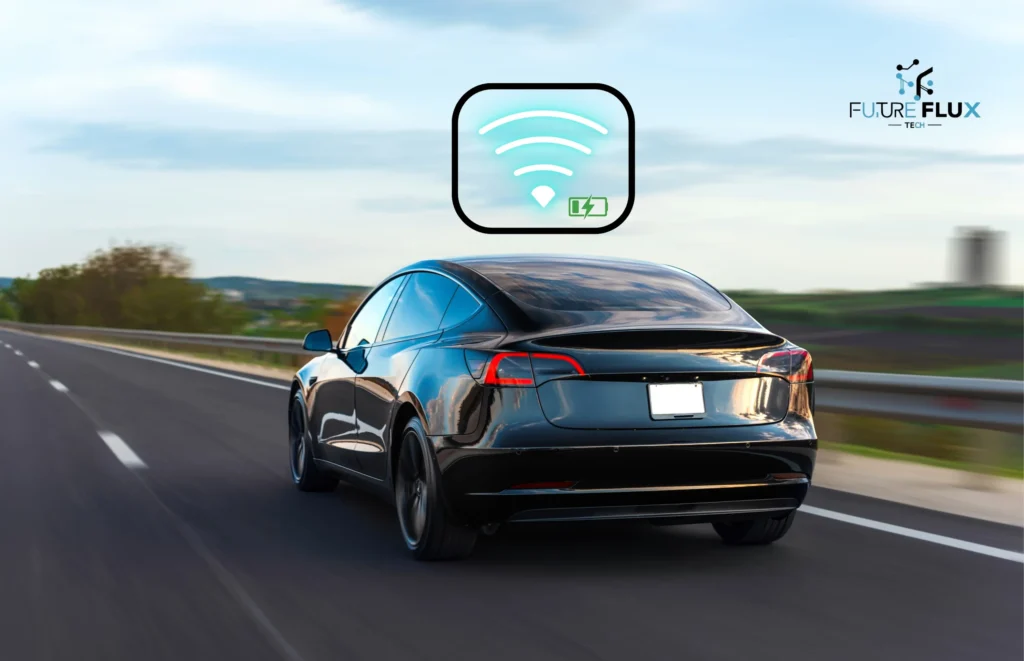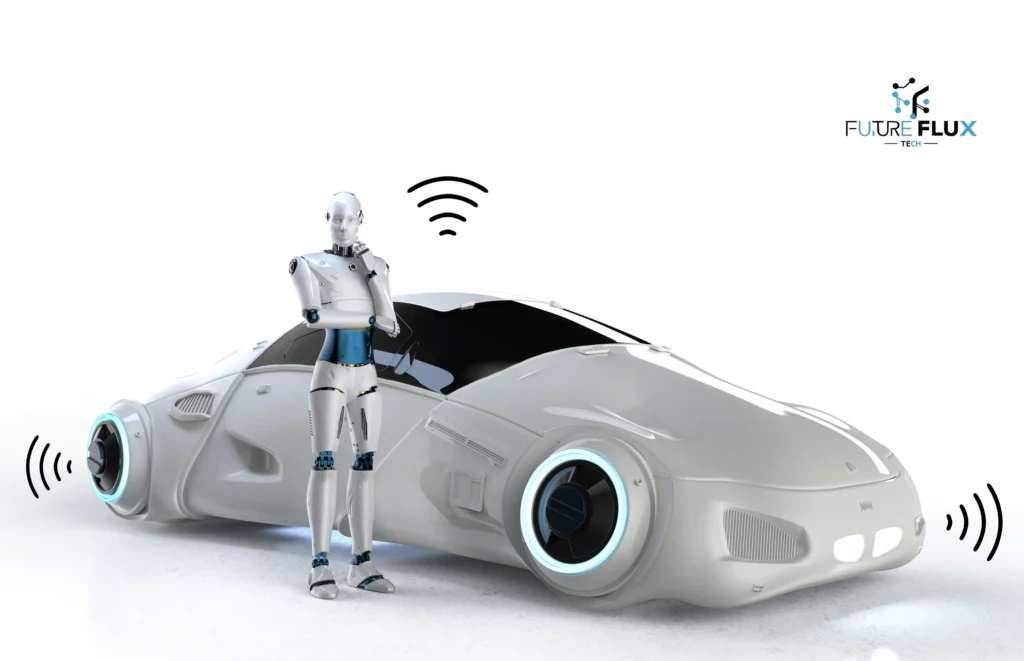As electric vehicles become more prevalent in the market, various modern technologies related to them are emerging. Wireless charging is one of the most advanced systems in the modern world. Wireless EV charging utilizes resonant electromagnetic induction to transfer electrical current, which is why it is also known as inductive charging technology.
Wireless charging for electric vehicles is considered very efficient and fast. Cars with wireless charging have also become a popular trend in the automotive market. In this article, we will discuss what cars with wireless charging are, how they work, and their benefits.
Table of Contents
ToggleWhat Does It Mean by Cars with Wireless Charging?

A car with wireless charging frees an electric vehicle from the need for a cable to charge it. It further adds to the convenience of charging EVs at work or home. You can easily park your car in a designated location, and the steering can also be automatically operated. According to the instructions, the EV driver can park their vehicle at the desired spot simply by using the accelerator, shift, or brakes. Because of this, you can greatly reduce the hassle of parking as well.
How Wireless EV Charging Works?
Like mobile phones, cars with wireless charging have a magnetic coil in the charger. This coil transmits current to a magnetic coil located on the underside of the vehicle. When these two pads align, the car’s charging begins.
Wireless charging is considered to be as fast and efficient as charging with a plug. For instance, an EV plug charger gives an 80-95 % EV charging efficiency rating. At the same time, a car with wireless charging will show a 93-95 % efficiency rating. Wireless charging also provides up to 20kW of charging power, mainly a level 2 charging speed. Furthermore, there are also no technological limitations that prevent higher speeds.
Wireless EV Charging Options
Wireless EV charging comes in two different types. These include static EV charging and dynamic EV charging.
Static EV charging
This type of EV charging is the most similar to what EV drivers do now. Static EV charging implies that your electric vehicle is not moving while charging. Instead of plugging in the charger, a car with wireless charging will have equipment to park over the installed wireless charging coil. These are usually installed in a designated space or location.
Dynamic EV charging

Induction or wireless charging is eventually expected to be built on roadways so that EV drivers can charge their vehicles continuously as they go. It will operate similarly to regular induction charging and is also expected to work smoothly at speeds up to 65 mph. It allows EV owners to drive long distances without stopping for a charge. Plus, you are not worried about the risk of running out of power.
Benefits of Cars with Wireless Charging
Wireless EV charging has several benefits, especially in the modern, evolving world. Commercial vehicles can particularly benefit from this charging type.
No Wires
As you can get an idea by the name, wireless EV charging requires no wires. EV drivers do not need to carry heavy charging plugs or cables. They do not need these wires at every charging station to plug into their cars. Hence, you do not need to worry about range anxiety. The EV owners can park their cars over a charging pad. The charging process will start automatically, which makes it user-friendly. Since there are no physical connections, less wear and tear is found on the wireless charging infrastructure and the charging port of the EV. It potentially leads to reduced maintenance costs and increased longevity.
Reduced Accident Risk
EV charging cables may get damaged over time. These damages are usually noticed, particularly in extreme cold and hot areas. If your cables are not in good condition, they can be hazardous to the vehicle and its owner. Wireless means fewer risks, and replacing cables is also expensive. Moreover, the absence of exposed cables minimizes the risks of tripping hazards and electrical accidents. Therefore, wireless EV charging can be safer, particularly in public spaces.
More Convenient
Wireless charging is simply more convenient. Even though it is only available as static charging right now, it is still convenient. Considering this, imagine how convenient it would be if dynamic charging became a reality.
Saves Time
Although wireless charging is not much faster than regular EV chargers, you can save a little time. It is so because you do not have to get out of your vehicle, plug-in, etc. Furthermore, if dynamic charging becomes a reality, you will save substantial time on charging.
Sustainability
Wireless charging reduces the production and disposal of charging cables. This will ultimately lead to a more sustainable and greener future with fewer carbon footprints. Plus, cordless charging is also a great eco-friendly alternative to traditional charging methods. You can also integrate wireless charging systems with renewable energy sources like solar panels, which can further improve the sustainability features of electric vehicle charging.
Future-Proof Technology
Wireless charging technology, also known as induction technology, is constantly evolving. Ongoing research and development in this field bring new advancements to the industry. As EVs continue to gain popularity, wireless EV charging is expected to improve in different ways. These may include charging speed, efficiency, and compatibility. Investing in wireless charging infrastructure now can boost future compatibility with advanced EV models and upgrades.
Cons of Wireless EV Charging
Every technology has its cons, and some factors keep them a little bit behind. Some of the cons of wireless charging are discussed below.
Wireless charging usually has lower energy efficiency than traditional wired charging. Because energy is transferred wirelessly, there can be energy loss during the charging process.
Wireless charging needs precise alignment between the EV receiving coil and charging pad for effective charging.
Alignment deviation can result in a decrease in charging efficiency or sometimes complete failure to charge.
Top Companies That Promote Wireless Charging
Here are the major players that are promoting EV wireless charging in the automotive industry.
Continental AG
Continental AG provides efficient, safe, intelligent solutions for electric vehicles and machines worldwide. The company offers an automated wireless charging solution and a charge charging system for the EV induction charging technology market. Continental AG prioritizes innovation like connectivity, automated driving, electric mobility, safety technologies, and technology for future mobility.
Daihen Corporation
Daihen is a Japan-based electronic manufacturing company that provides solar inverters, power distribution equipment, welding machines, transformers, and wireless power transmission systems. Its welding and mechatronics business segment operates and offers wireless power transfer systems.
ELIX Wireless
ELIX Wireless is a private Canadian company that develops wireless power transfer technologies. It utilizes magneto dynamic coupling to provide safe and sufficient power for different applications, such as warehouse and material handling robots, autonomous vehicles, and automated guided vehicles (AGV). This company also provides solutions for trucks and buses, mining equipment, material handling, and passenger cars.
Mojo Mobility, Inc.
Mojo Mobility was established to develop wireless power transfer technology. It offers solutions for applications like mobile charging, automotive infrastructure, wearable technology, electric vehicle charging, and others. The company operates with various technologies. These may include position-free wireless charging technology, wireless vs. cord charging, multi-device integration, and safe charging technology.
WiTricity Corporation
WiTricity Corporation specializes in power transfer, wireless electricity, magnetic resonance, charging, and electric cars. The company offers automotive solutions, licensing, engineering solutions, and support.
Popular Wireless Charging Cars
Here is a list of the top well-known wireless charging cars.
Hyundai Kona Electric: A luxury electric SUV with a prominent range of features.
Cadillac Lyriq: A compact SUV providing modern technology and an innovative design.
Chevrolet Bolt EV: An adaptable electric vehicle popular for its long range and affordability.
BMW iX3: An all-electric BMW SUV that combines luxury and performance.
Nissan Leaf: A famous electric hatchback reputable for its affordable price and practicality.
Audi e-tron: A premium SUV with modern technology and a stylish design.
Kia Soul EV: A compact electric crossover with unique styling and a practical interior.
Ford Mustang Mach-E is an electric SUV with a renowned Mustang name that provides performance and style.
Toyota Prius Prime: A plug-in version of the legendary hybrid, well-known for fuel efficiency.
Mercedes-Benz EQC: A luxury electric SUV from Mercedes Benz brand, Daimler, offering performance and comfort.
Future of EV Charging
| Wireless Cars | Manufacturer | Established in | |
| 1. | Ford Mustang Mach-E | Ford | 2020 |
| 2. | Tesla Model 3 | Tesla | 2017 |
| 3. | Audi e-tron | Audi | 2018 |
| 4. | BMW i3 | BMW | 2013 |
Future of EV Charging

The future of EV charging seems bright. As the world evolves, the rise of electric vehicles is also increasing. Because of this, EV charging is also highly demanded.
Wireless charging is one of the types of EV charging. It is considered the most modern and convenient way to charge an EV. Static wireless charging is available and used by EV drivers in today’s world. However, electric vehicle owners and market trends expect more, such as dynamic charging. With this type of charging, EV drivers can drive wherever they need to and charge their vehicles simultaneously. Let’s hope for the best and a better future for the EV world.
To know more about the market trends and details about electric vehicles, visit our website. Know different EV business models and more!
Conclusion
Electric vehicles and their different charging types have a great future ahead. Furthermore, wireless charging of EVs can be a real game-changer. Although wireless charging is still in the early adoption stages, it has ease of use, convenience, and space-saving advantages. Because of these features, it becomes an attractive option for electric car drivers. With continuous standardization and development efforts, wireless charging could become the future big revolution in sustainable transportation.
I’m Waqas, an electric vehicle enthusiast and tech writer with over 6 years of experience covering the EV industry. I write in-depth articles, comparisons, and reviews to help readers understand the fast-evolving world of electric mobility. From battery technology to EV launches and charging trends, I aim to make complex EV topics simple, engaging, and informative for everyday drivers and curious readers alike.






One Response